Xi seeks submission from business giants
Why China's efforts could be self-defeating
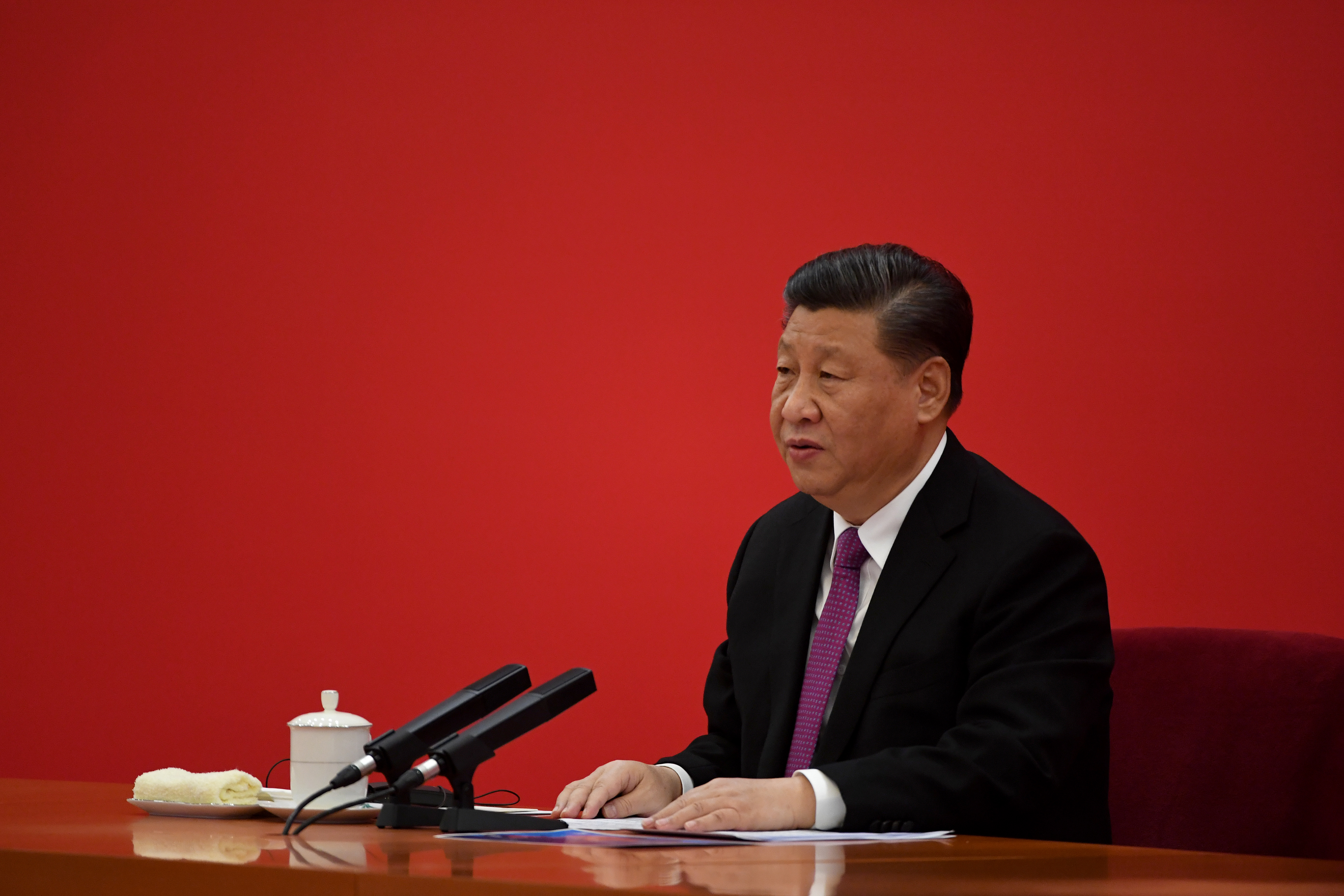
A free daily email with the biggest news stories of the day – and the best features from TheWeek.com
You are now subscribed
Your newsletter sign-up was successful
The smartest insight and analysis, from all perspectives, rounded up from around the web:
China's regulatory crackdown on its most powerful businesses appears far from over, said Christian Shepherd at the Financial Times. Over the past several months, the world's second-largest economy has "knocked tens of billions of dollars off the valuations of some of the country's biggest tech groups," including Alibaba, Tencent, and Didi, with several "sudden interventions" aimed at curtailing the size and influence of corporate behemoths. But newer restrictions have reached beyond dominant tech firms. China recently prohibited online schools — a big business in China — "from making profits, raising capital, or listing on stock exchanges." Increased regulations have also led to an exodus of almost half of the world's Bitcoin miners. And the effort to "assert Communist Party supremacy" seems to be only beginning.
This is an opportune time for Xi to launch a long-planned effort, said Bloomberg News. Though there is little doubt that he will be able to extend his rule to a third five-year term after the politically sensitive party congress in 2022, he likely still wants to "stave off any criticism the party has been captured by the wealthy." Until recently, "external events have tied Xi's hands," as he contended with a U.S. trade war and the Covid pandemic. But now he has a chance to rein in China's tycoons and push for technological "self-reliance." Xi may be cutting down China's superstar tech firms, said Greg Ip at The Wall Street Journal, but he's not abandoning the country's tech ambitions. He has been showering "subsidies, protection, and 'buy-Chinese' mandates" on manufacturers such as those turning out semiconductors, EV batteries, commercial aircraft, and telecommunications equipment. In Xi's view, "national greatness doesn't depend on having the world's finest group chats or ride-sharing." It depends on "being able to make the most advanced technology."
The Week
Escape your echo chamber. Get the facts behind the news, plus analysis from multiple perspectives.

Sign up for The Week's Free Newsletters
From our morning news briefing to a weekly Good News Newsletter, get the best of The Week delivered directly to your inbox.
From our morning news briefing to a weekly Good News Newsletter, get the best of The Week delivered directly to your inbox.
There is a Chinese saying that means "picking up a stone to smash one's foot," said Nathaniel Taplin, also at the Journal. That's what China is doing if it thinks "it can snap its fingers and create — or destroy — whole industries at will." The impact on the country's growth, employment, and debt could be significant. "If the global economy were a zero-sum game, Xi's sabotaging China's boldest innovators might cheer Washington," said William Pesek at Nikkei Asian Review. But if Xi's strategy "is to wall off Asia's biggest economy" from the U.S., Japan, and Europe, that's -nothing for anyone to celebrate.
The crackdown "is likely to prove self-defeating," said The Economist. Xi's assault on his own country's $4 trillion tech industry is startling because the rise of that industry is "one of the most impressive of all China's achievements in the past two decades." Stronger regulation of China's internet industry was probably overdue. "In contrast to Vladimir Putin's war on Russia's oligarchs in the 2000s, China's crackdown is not about insiders fighting over the spoils." But the way that Xi has gone about this has set off a battle in which "an unaccountable state wrestles with the world's biggest firms for control of the 21st century's essential infrastructure." There's a lot that can go wrong.
This article was first published in the latest issue of The Week magazine. If you want to read more like it, you can try six risk-free issues of the magazine here.
A free daily email with the biggest news stories of the day – and the best features from TheWeek.com
-
 6 of the world’s most accessible destinations
6 of the world’s most accessible destinationsThe Week Recommends Experience all of Berlin, Singapore and Sydney
-
 How the FCC’s ‘equal time’ rule works
How the FCC’s ‘equal time’ rule worksIn the Spotlight The law is at the heart of the Colbert-CBS conflict
-
 What is the endgame in the DHS shutdown?
What is the endgame in the DHS shutdown?Today’s Big Question Democrats want to rein in ICE’s immigration crackdown
-
 TikTok secures deal to remain in US
TikTok secures deal to remain in USSpeed Read ByteDance will form a US version of the popular video-sharing platform
-
 How will China’s $1 trillion trade surplus change the world economy?
How will China’s $1 trillion trade surplus change the world economy?Today’s Big Question Europe may impose its own tariffs
-
 Shein in Paris: has the fashion capital surrendered its soul?
Shein in Paris: has the fashion capital surrendered its soul?Talking Point Despite France’s ‘virtuous rhetoric’, the nation is ‘renting out its soul to Chinese algorithms’
-
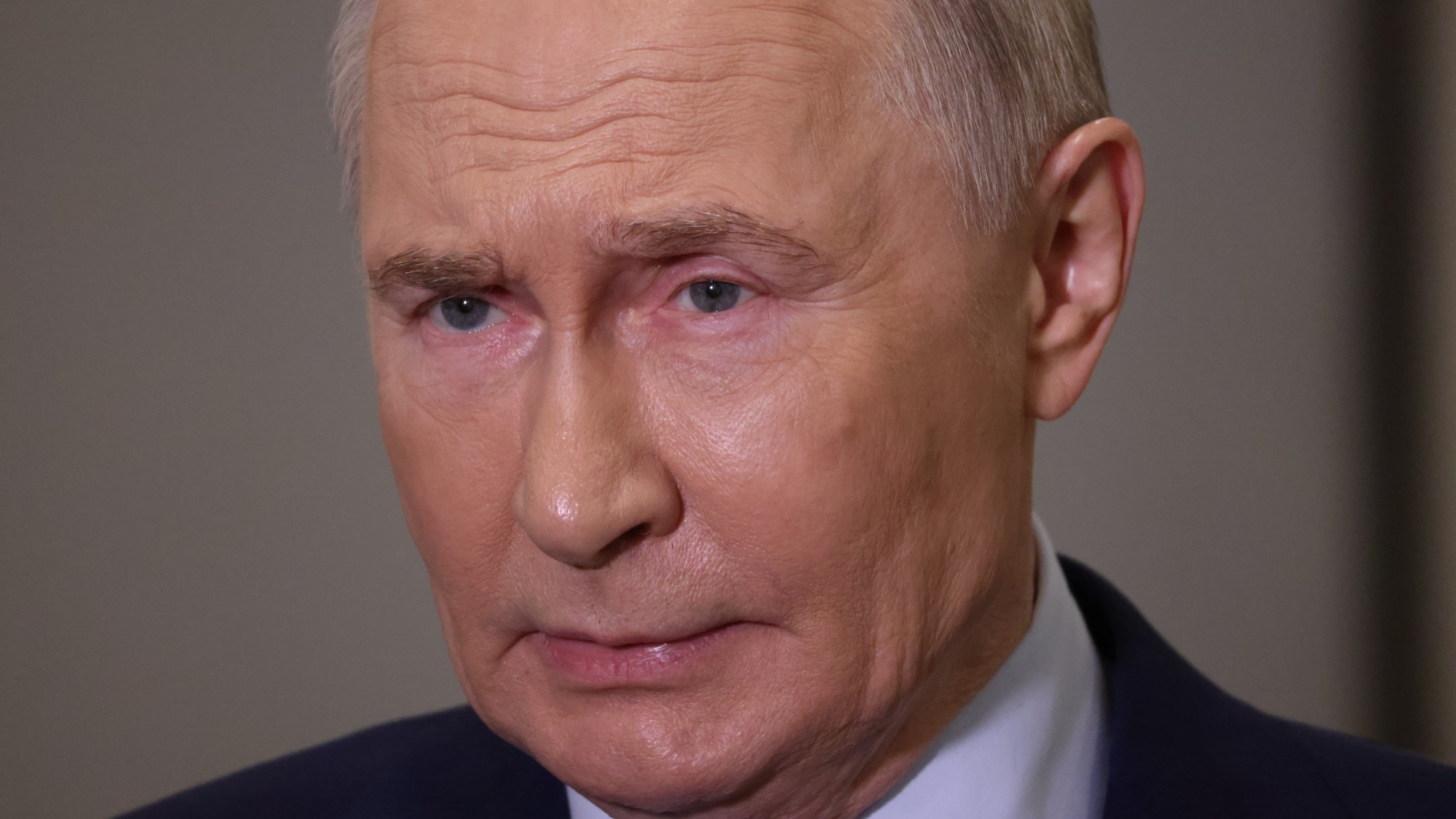 Will latest Russian sanctions finally break Putin’s resolve?
Will latest Russian sanctions finally break Putin’s resolve?Today's Big Question New restrictions have been described as a ‘punch to the gut of Moscow’s war economy’
-
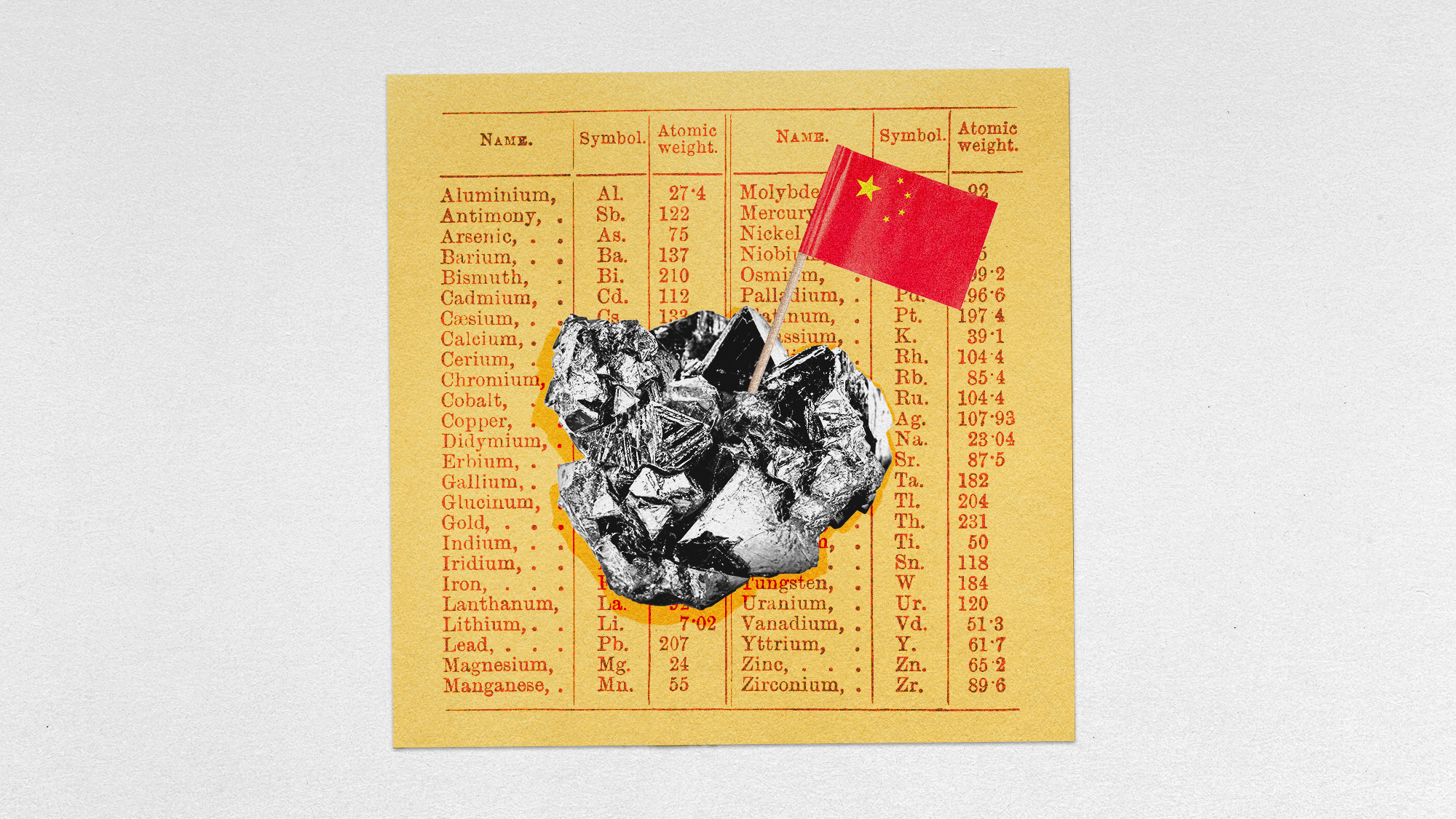 China’s rare earth controls
China’s rare earth controlsThe Explainer Beijing has shocked Washington with export restrictions on minerals used in most electronics
-
 The struggles of Aston Martin: burning cash not rubber
The struggles of Aston Martin: burning cash not rubberIn the Spotlight The car manufacturer, famous for its association with the James Bond franchise, is ‘running out of road’
-
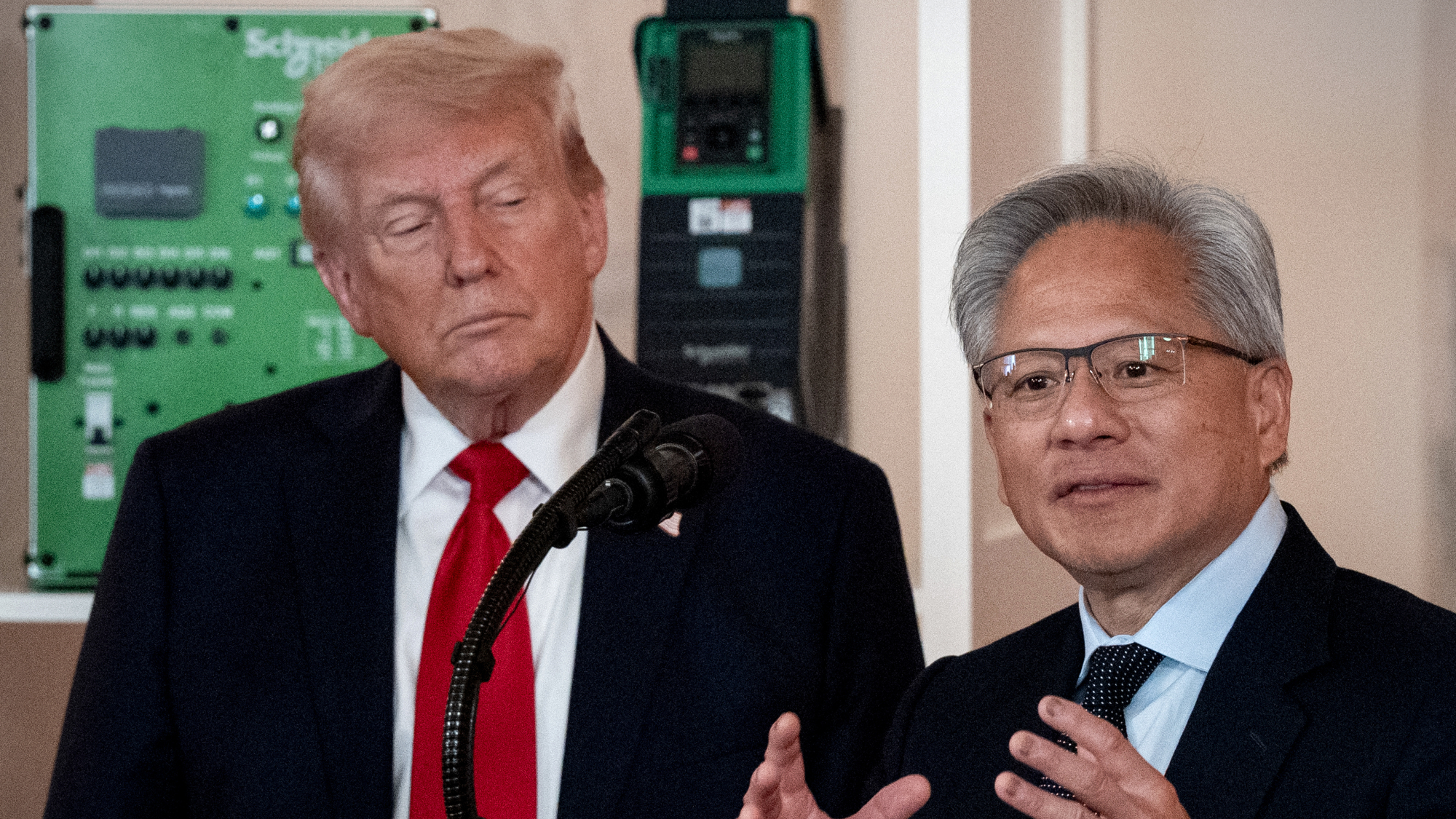 US to take 15% cut of AI chip sales to China
US to take 15% cut of AI chip sales to ChinaSpeed Read Nvidia and AMD will pay the Trump administration 15% of their revenue from selling artificial intelligence chips to China
-
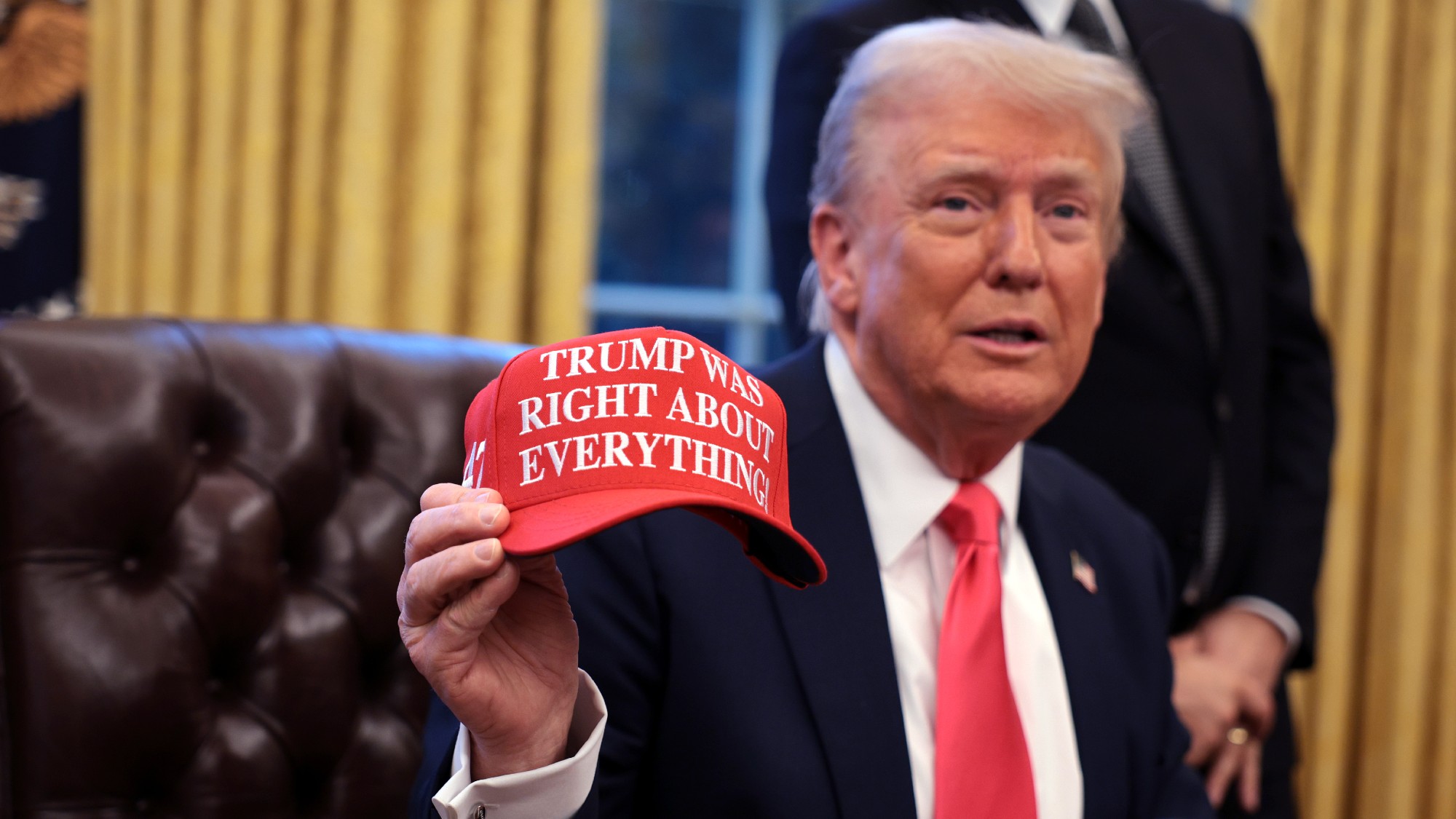 Is Trump's tariffs plan working?
Is Trump's tariffs plan working?Today's Big Question Trump has touted 'victories', but inflation is the 'elephant in the room'